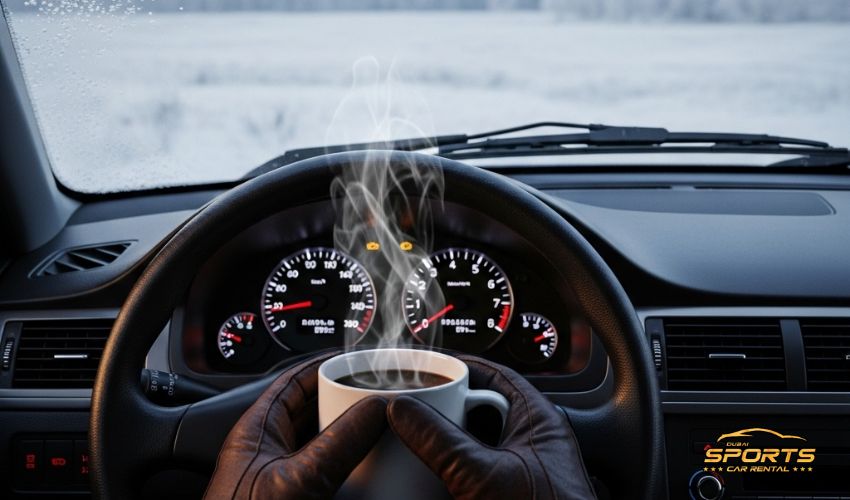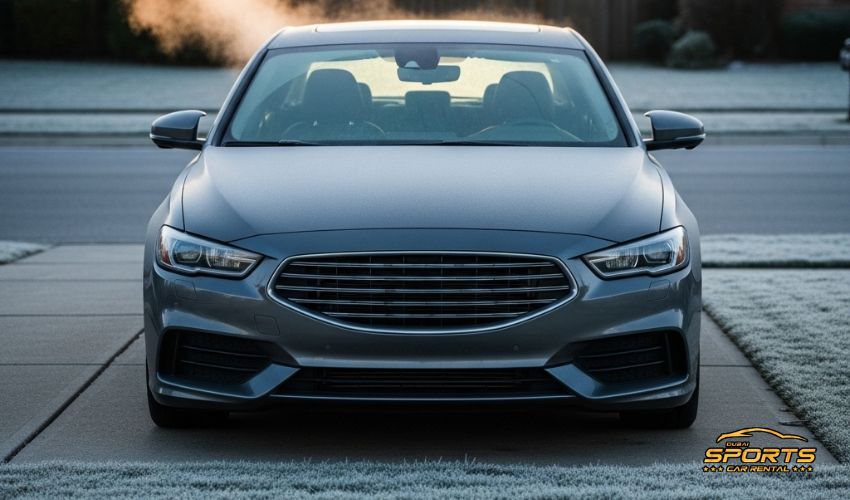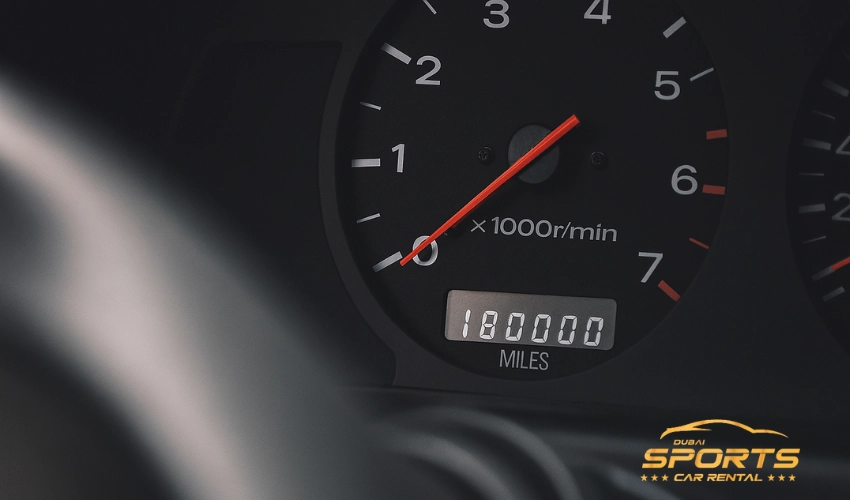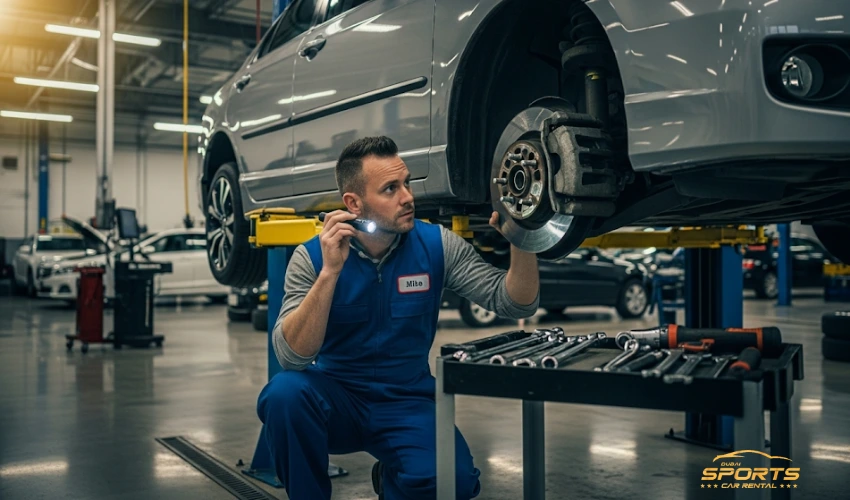The Modern Way to Warm Up Your Car
The belief that you must idle your car for several minutes comes from the era of carburetors, which required warm-up time to mix fuel and air correctly, and this is not the way to warm up car faster. Today, cars use electronic fuel injection. It features sensors that automatically adjust the fuel-to-air mixture, even in cold temperatures.
While long periods of idling are unnecessary, a brief warm-up period is beneficial. In freezing weather, engine oil becomes thick. Idling for about a minute allows the oil to thin and circulate, providing vital lubrication to the engine’s moving parts.
How to Warm Up Your Car Faster: Effective Strategies
To warm up your car faster, you should focus on getting the engine under a light load, which generates heat more efficiently than idling. Combining a short idle with smart driving and proper use of your car’s features is the best approach.
Drive Gently for the Quickest Results
Driving your car is the most effective way to warm the engine and the cabin. The engine works harder when the vehicle is in motion, producing heat much faster than when it is idling in neutral. Driving for five to ten minutes can warm the engine more effectively than idling for fifteen minutes.
After starting your car, wait about 30 to 60 seconds. Then, begin driving at a low speed. Avoid sudden acceleration or high speeds for the first five to ten minutes to allow all components to reach their ideal operating temperature without stress.
Use Your Climate Controls for Faster Cabin Heat

You can speed up the process of warming the cabin with a few simple tricks. Many people turn the heat and fan to maximum right away, but a more strategic approach is often more effective. These tips help you get warm without a long wait.
- Use the Defrost Setting First: Directing the initial heat to the windshield helps clear frost and fog quickly, improving visibility for safe driving.
- Press the Recirculation Button: Once you start feeling some warmth, press the air recirculation button. So this closes the vents to the outside, and your heater will warm the already-warming air inside the car instead of continuously heating cold air from outdoors.
- Turn On the A/C Button: It may seem counterintuitive, but pressing the A/C button helps warm the car. The A/C system conditions the air by removing moisture, which acts as a dehumidifier and prevents your windows from fogging up when you use the recirculation setting.
Common Car Warming Mistakes to Avoid

Many drivers make simple mistakes that slow down the warm-up process or even harm their vehicle. Avoiding these common errors ensures your car warms up efficiently and safely.
You should not rev your engine to make it warm up faster. While revving does generate more heat than idling, it puts significant stress on cold engine components that are not yet properly lubricated.
- Turn-Off Accessories: When you first start the car, turn off accessories like the radio, lights, and heated seats. These items draw power from the engine and can slow down the warming process.
- Park in a Garage: An enclosed space protects your car from wind and ice. Parking in a garage keeps the engine at a more moderate temperature, allowing it to warm up faster.
- Park in the Sun: If a garage is not an option, parking your car in a sunny spot can naturally keep it warmer during the day.
- Keep Doors Closed: When warming the cabin, keep the doors closed to trap the heat inside. Thus, this prevents cold air from entering and allows the interior to warm up faster.
- Check Antifreeze Levels: Your car’s heater uses the engine’s hot coolant to warm the cabin. If the heater blows cold air, you may have a faulty heater or low antifreeze levels.
Also Read: How to Turn on Defroster in Car
Warm Up Car Faster: Conclusion
Forget old myths about idling. The best way to warm up your car faster is to drive it. A brief 30-second idle is all you need before driving gently. It saves you time, fuel, and protects your engine.



